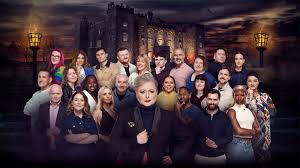The Complex Legacy of Traitors in Ireland’s History

Introduction
The topic of traitors in Ireland’s history remains a contentious and intriguing subject, reflecting the country’s tumultuous past. The term ‘traitor’ evokes strong emotions and interpretations, especially when intertwined with concepts of loyalty, nationalism, and identity. This discussion is particularly relevant today as Ireland continues to navigate its historical narrative while seeking a unified understanding of its diverse heritage.
Historical Context
The narrative of traitors in Ireland can be traced back to the long struggle for independence from British rule, where individuals were often branded as ‘traitors’ for collaborating with the British government. Key figures, including those involved in the 1798 rebellion and the 1916 Easter Rising, experienced betrayal accusations depending on their political affiliations and allegiances.
One prominent example includes Roger Casement, a revered nationalist who sought German support during World War I to aid in Ireland’s fight for independence. His trial for treason in 1916 highlighted the complexity of loyalty versus betrayal and raised questions about his motives and methods in the context of Irish nationalism.
Modern Implications
Today, the term ‘traitor’ in Ireland is not merely historic but has prospective implications as well. With ongoing debates centred on the Republic of Ireland’s relationship with Northern Ireland and the broader United Kingdom, the discussions about who is defined as a traitor continue to evolve. Groups with differing perspectives often clash on who aligns with true Irish identity versus those who compromise it through collaboration with non-Irish entities.
Furthermore, the impact of social media has allowed new generations to express their views on this sensitive subject. The portrayal of historical figures as traitors or heroes can significantly influence public opinion and national identity, emphasising the necessity for discussions that bridge historical understanding with contemporary relevance.
Conclusion
In conclusion, the concept of traitors in Ireland’s rich history is a layered and complex subject that not only invites reflection on past events but also challenges current narratives about national identity and loyalty. As Ireland confronts its history and looks to the future, the definitions and perceptions of betrayal will continue to be a significant part of national discourse. Understanding these elements is crucial for fostering a more inclusive conversation about the nation’s past and its ongoing journey towards unity.









